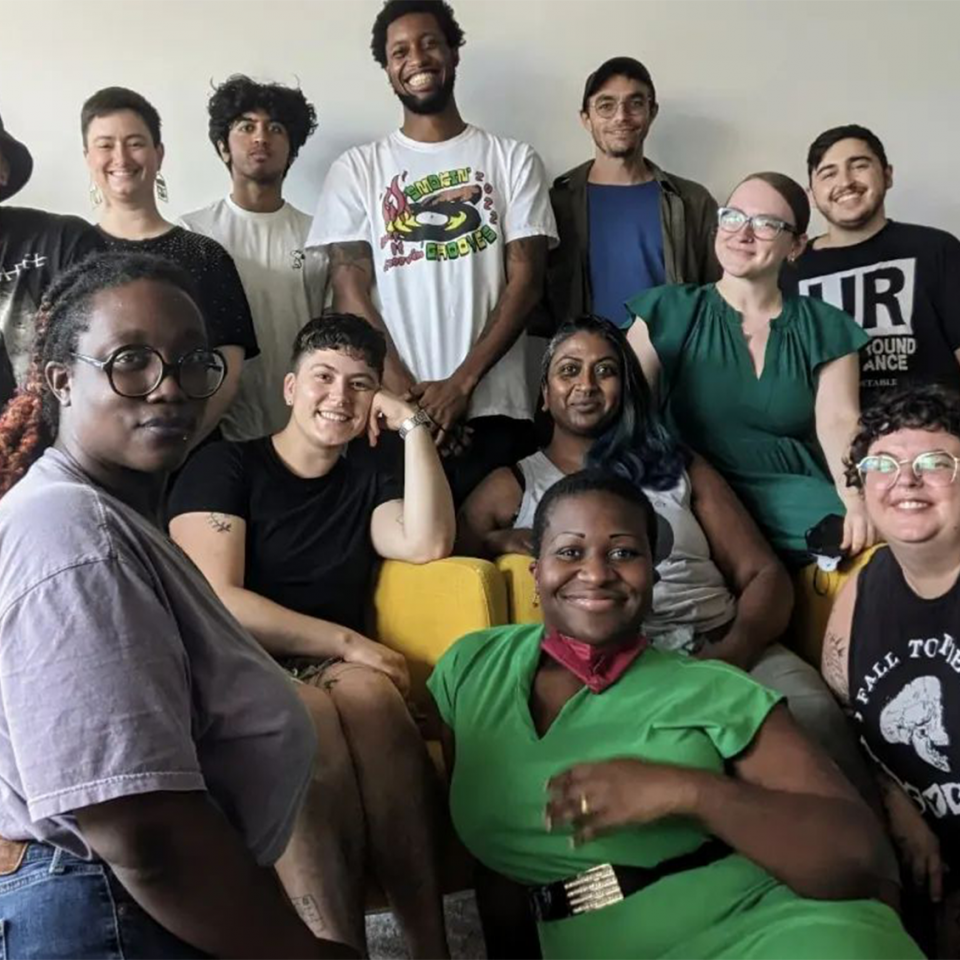Larrice is a mother, grandmother, teacher, cook and storyteller who was recently featured in our original documentary, “Taking Care: Portraits from Baltimore.”
The Mayor’s Office of Homeless Services has declared a winter shelter warning for the period of Friday, November 29 through Wednesday, December 4 at 9 am. Call 211 (available 24/7) or 443-984-9540 to connect with shelter. Get more info here.



10.19.23
Photo: The BHRC team. As experts in the on-the-ground harm reduction needs of Baltimore City, BHRC has been an instrumental partner in shaping Health Care for the Homeless’ substance use services.
Since 2011, Baltimore Harm Reduction Coalition has offered services and advocated for people targeted by the war on drugs and anti sex-worker policies. Health Care for the Homeless partners with BHRC in calling for overdose prevention sites in Maryland as well as other policy changes, including this past year’s successful expansion of the Good Samaritan Act. We spoke with Policy Manager Owen O’Keefe about BHRC’s continued goals for harm reduction in Baltimore.
What is harm reduction and how does it guide your work?
At BHRC, we approach harm reduction as part of a broader movement for social justice, and we define it on two levels. At the individual level, we see harm reduction as a set of practices that expand choices, increase access, and promote opportunities to assist people to be safer, particularly when engaging in stigmatized behaviors such as drug use and sex. At the institutional level, harm reduction aims to shift systems and broader culture to be safer for both individuals and communities.
How has the rise of fentanyl and xylazine in street drugs changed the kinds of care that Baltimoreans are seeking?
Our services team is constantly adapting to address changes in the drug supply. The presence of fentanyl increased the number of overdoses we see and the need for Narcan. With more xylazine use, we see folks who are heavily sedated and have more severe wounds. Our services team is having to focus more on wound care.
What does Baltimore City need to do to reduce harm?
Baltimore City needs Overdose Prevention Sites (OPS). We need non-judgmental spaces where people who use drugs are met with dignity and respect. OnPoint NYC recently celebrated their 1,000th overdose intervention since opening in 2021. That’s 1,000 lives saved by having this service in the community.
Other than OPS, we need expanded housing options for people who use drugs. Housing will always be one of the biggest barriers to wellness for our participants. And as long as drug paraphernalia is criminalized, there will be a fear around obtaining sterile drug use supplies and holding onto them. We are calling for a full decriminalization of paraphernalia in Maryland, something recently accomplished in Minnesota.
What else can individuals do?
The first thing I would suggest is to address stigma, both within yourself and within your social circles. People who use drugs, people who sell or trade sex, and people experiencing houselessness are our neighbors, family, and friends and we need more people to advocate for their humanity. Having those difficult conversations is the first step in organizing to change oppressive policies. So whether it’s in discussion with your parents, coworkers, your community association, or at a hearing in the Maryland General Assembly—we need more people willing to step up.

More Recent News
Founded in 1979, the Maryland Food Bank provides six million meals a year in Maryland through its partnership with nearly 1,200 soup kitchens, pantries, shelters, and community-based organizations. Learn more about their work.
More than a quarter of all client visits to Health Care for the Homeless are with case managers. Presented below is one day in the life of Case Management Coordinator Adrienne Burgess-Bromley, who has been with the agency for 16 years.
Baltimore, you are rockstars! On the sunny first Saturday of November, 300+ runners, walkers, friends and volunteers took over Patterson Park for the 10th Annual Rock Your Socks 5K! We danced, cheered and enjoyed a festive race village complete with coffee, bagels, donuts, a bounce house and easy ways to engage with community partners.



